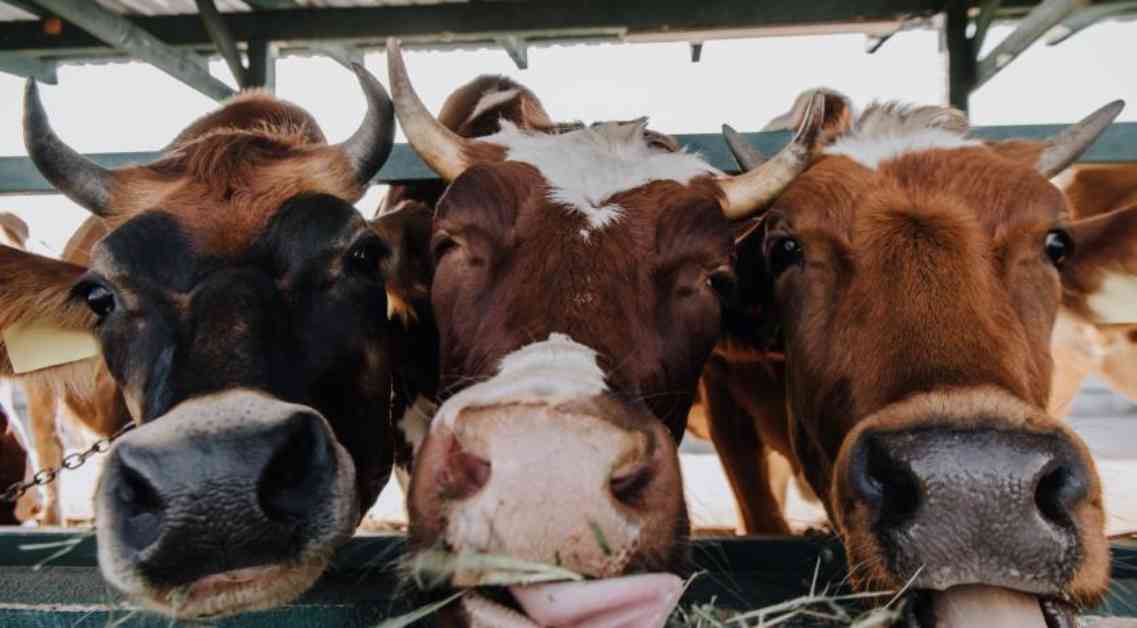Raad van State Beslissing Kan Problemen Opleveren Voor Boeren Uitkoopregeling
Dutch farmers seeking to exit the agricultural industry may encounter obstacles following a recent ruling by the Raad van State (Council of State) on nitrogen emissions. This ruling stipulates that farmers, businesses, and construction companies seeking changes must obtain new nitrogen permits. As a result, concerns have been raised about the potential impact on the country’s “exit program” for farmers looking to voluntarily cease operations.
In The Hague, sources have confirmed to NOS that the government is apprehensive about the ruling’s implications for the program. Nearly 1,700 farmers have shown interest in participating in the exit program, prompting Minister for Agriculture, Piet Adema, to assess the ruling’s effects on those planning to leave the industry.
“We are currently examining whether this interpretation is accurate,” Adema stated. “It is not intended for farmers who have already made the difficult decision to cease operations to face further uncertainty. This is a regrettable situation.”
The exit program, primarily targeting the largest agricultural nitrogen emitters, is considered a key solution to the country’s nitrogen crisis. Spearheaded by former Minister for Nature and Nitrogen, Christianne van der Wal, the program incentivizes farmers, particularly those near nature areas, to voluntarily shut down their operations through financial rewards. The government has emphasized voluntary exits over compulsory buyouts.
One notable aspect of the program allows exiting farmers to utilize up to 15 percent of their nitrogen quota. This leeway opens up possibilities for diversifying farm activities, such as transitioning to less nitrogen-intensive livestock like horses and sheep, or repurposing farms for commercial ventures like campgrounds or residential complexes.
However, the recent Council of State ruling introduces the requirement for farmers to obtain new environmental permits, contrary to the program’s initial design. The uncertainty surrounding the issuance of these permits is compounded by the country’s ongoing nitrogen emissions dilemma.
Legal teams from provincial authorities and the Ministry of Agriculture are currently investigating the ruling’s implications for farmers, exploring potential exceptions. There is a prevailing concern that the program may lose participants if the added requirements diminish its attractiveness compared to the original plan.
In response to the Raad van State ruling and a separate court decision involving Greenpeace, the Dutch government has convened a ministerial working group tasked with devising solutions to the nitrogen issue. By the end of March, the group is expected to unveil proposals aimed at addressing the persistent challenges.
Impact on Farmers
The recent ruling’s potential impact on farmers participating in the exit program cannot be overstated. For those who have already taken the difficult step of deciding to leave the industry, the prospect of navigating additional regulatory hurdles poses a significant source of stress and uncertainty.
Jan, a farmer from Gelderland who has been contemplating joining the exit program, shared his concerns about the ruling. “I was already on the fence about leaving, but now with these new permit requirements, the whole process seems even more daunting. It’s a lot to consider,” Jan remarked.
Expert opinions on the matter vary, with some legal scholars highlighting the need for flexibility in interpreting the ruling to accommodate farmers’ specific circumstances. “While regulatory compliance is crucial, there should be room for nuanced approaches that consider the unique challenges faced by exiting farmers,” noted Professor Anna de Vries, an environmental law expert.
Government Response and Future Plans
In response to the growing concerns surrounding the exit program and the broader nitrogen crisis, the Dutch government has taken proactive steps to address these challenges. By convening a ministerial working group dedicated to finding comprehensive solutions, officials are demonstrating a commitment to tackling the issue head-on.
Minister for Agriculture, Piet Adema, expressed optimism about the working group’s ability to navigate the complexities of the nitrogen problem. “We are dedicated to finding practical solutions that balance environmental protection with the welfare of farmers and other stakeholders. By working together, we can overcome these challenges,” Adema affirmed.
As the working group races against the clock to develop actionable plans by the end of March, farmers, policymakers, and environmental advocates alike are eagerly anticipating the proposed strategies that will shape the future of the agricultural industry and environmental sustainability in the Netherlands.





















